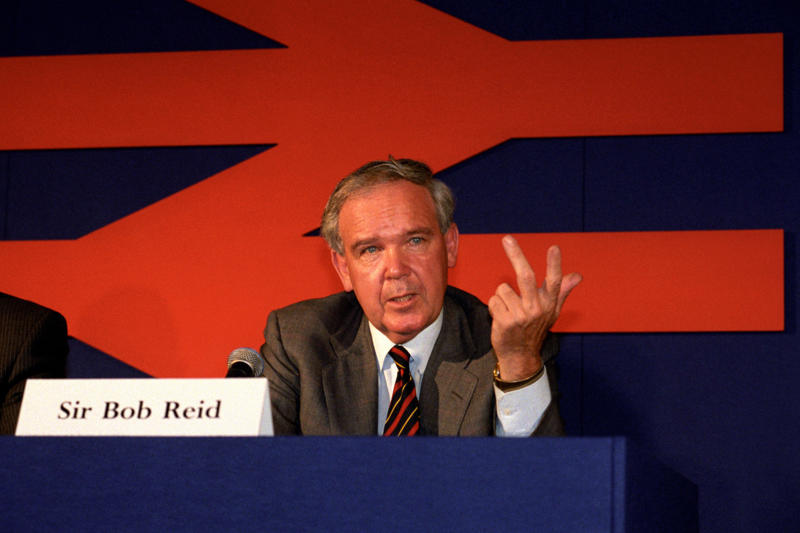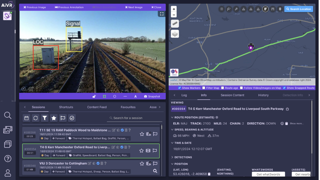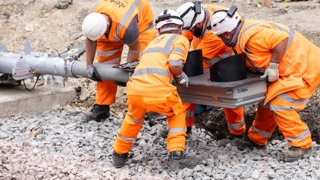
There is a little irony in the fact that Sir Bob Reid died just three days after South Western Railway was taken back into public ownership.
He would have liked the fact that the main focus of the government’s changes is integration as well as renationalisation.
While not opposed to privatisation, Sir Bob argued very strongly for a different model arguing in particular that the privatised businesses should have been run as integrated organisations.
Sir Bob, who confusingly took over from his namesake (the creator of the sectorised railway) in 1990 and found himself (somewhat unexpectedly given the Conservatives' surprise election victory in 1992) having to break up the organisation he had taken over after a lengthy career as a senior executive at Shell.
In an exclusive departing interview for The Independent he gave to me in March 1995 at the end of his five-year contract, he revealed the fierce behind-the-scenes arguments that had taken place.
The model he had put forward was rejected by the government, but he stressed he did not resign as he felt responsible for the 140,000 people who worked for BR
The interview was pretty revealing and explosive stuff. Sir Bob felt that the big mistake was separating out Railtrack from the rest of the industry. He predicted mergers of the train operating companies as several were expected to fall into financial difficulties but felt there would not be any line closures “as there was a need for stability in the industry”.
He dismissed the idea that there would be competition between operators (which had been the very basis for the way that the new structure was created).
But he rightly foretold that “competition is going to be difficult to achieve for passenger services”. That’s why, instead, he had argued for an integrated structure with which would “have got private capital more quickly into the railways”. He pointed out that already by that stage the government had the idea of trying to instil competition between operators running on the same rail lines but had not changed the basic model.
The reason that BR lost out in putting forward its ideas was, according to Sir Bob, that government had lost confidence in the organisation because of the Clapham train crash in 1988 and consequently “our achievements had not been recognised”.
Even having lost the main argument, he continued to put forward ideas which were rejected.
One innovation he suggested was for very low rates of access charge on poorly used lines in order to encourage greater patronage and reduce the amount of subsidy they needed to be kept open.
Not surprisingly, the interview attracted widespread coverage and for a time the privatisation process was in danger of being derailed, but ultimately his successor, the career railwayman John Welsby, who had been his Chief Executive, took over and steered the policy through.
Sir Bob was a charming man who made good the loss of his right hand in a mincing machine in his father’s butcher’s shop at the age of nine by focussing on academic achievement, knowing he could never make a living through manual labour.
An illustration of his determination is revealed by the fact that he became an excellent golfer with a low handicap and even won several junior events.
Although he had come to BR without any rail experience, he won over many internal critics with his pleasant manner and intelligence though he did not suffer fools gladly and was well known for being forceful in his criticisms.
Although at first a reluctant railwayman – he was by no means the first to be approached for the job – he was recognised as an effective chairman who had tried, unsuccessfully, to retain the character of BR.
He knew exactly what he was doing when he gave me that departing interview and kept in touch in subsequent years, still annoyed by the fact that he had lost out in the arguments over the future of the industry.
Sir Robert Paul Reid, former BR Chairman: born May 1 1934; died May 28 2025. His wife, Joan, died in 2017. They are survived by their three sons: Paul, Michael and Douglas.
















Login to comment
Comments
No comments have been made yet.